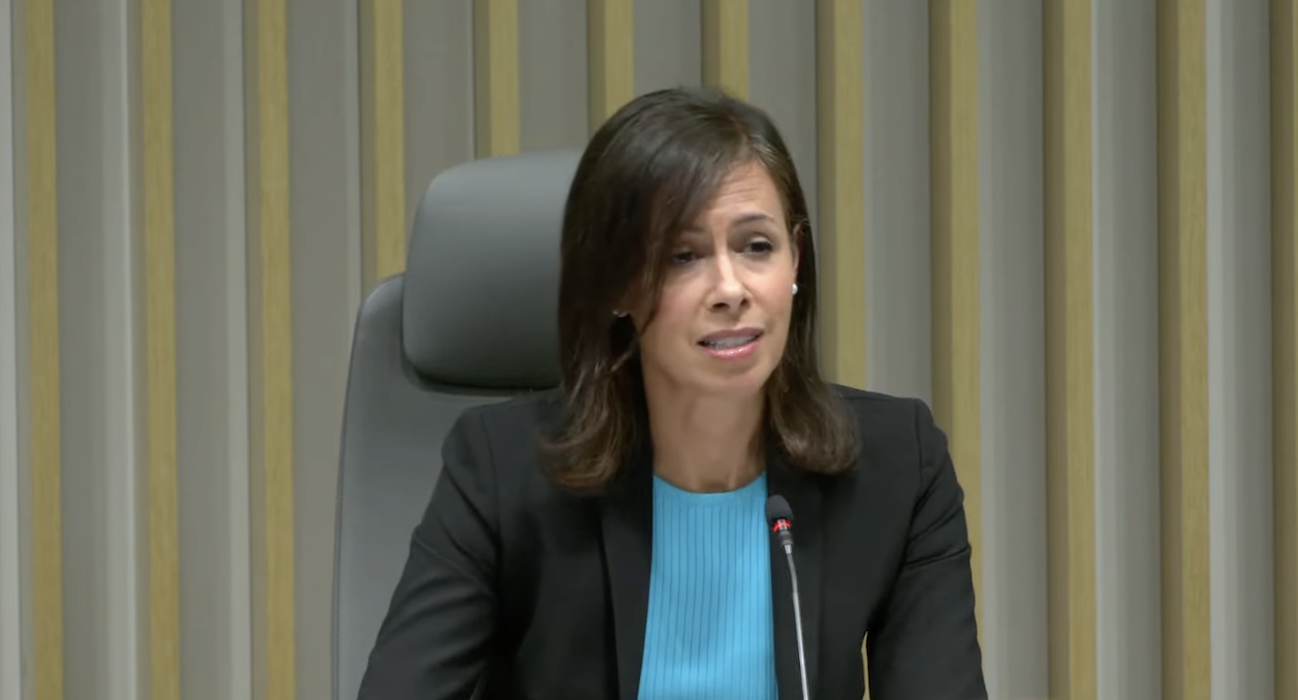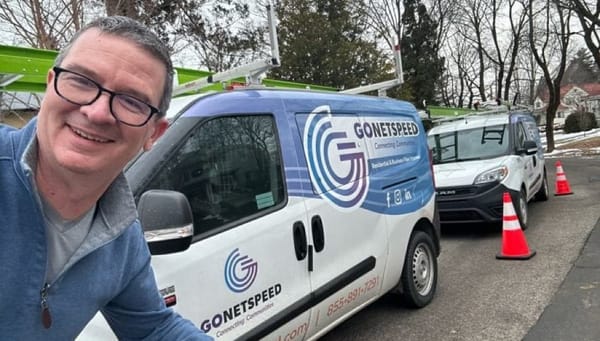FCC Approves Strong Digital Discrimination Rules
The FCC also approved support for domestic abuse victims, inquiry on AI and robocalls and preventing cell phone scams.
Jake Neenan

WASHINGTON, November 15, 2023 – The Federal Communications Commission approved digital discrimination rules Wednesday that will take a tougher tack on companies providing disparate broadband services, scrutinizing policies that are not intentionally denying service to protected groups.
The FCC has said in its approved rules it will accept legitimate logistic and economic barriers as defenses from companies accused of discriminatory practices, and will evaluate those claims on a case-by-case basis. Companies found to be in violation of the new rules will be subject to the commission’s existing enforcement measures.
The measure, proposed in October, passed on party lines, with the three Democratic commissioners voting in approval and the two Republicans dissenting.
“Many of the communities that lack adequate access to broadband today are the same areas that suffered from longstanding patterns of residential segregation and economic disadvantage,” said FCC Chairwoman Jessica Rosenworcel.
In adopting the order, the commission will also begin accepting comments on establishing a civil rights office within the agency and imposing additional reporting and compliance requirements on broadband providers.
The commission was required by the Infrastructure, Investment and Jobs Act to develop policies to prevent gaps in broadband access among different races, ethnicities, income levels, and other demographic characteristics – known as digital discrimination. Its adoption of those rules comes on the two-year anniversary of the IIJA, the deadline set by the law.
In an update to the public draft that was released in October, the approved rules exempt providers participating in the $42.5 billion Broadband Equity, Access and Deployment program and the FCC’s Universal Service Fund. The policies of those programs, commissioners said, already prevent disparate deployment in service areas that are difficult or expensive to reach.
Industry groups have been lobbying against the rules, meeting with commission staff repeatedly in recent weeks to advocate a lighter touch. Civil rights groups have applauded it, making a push of their own to urge commissioners to stand firm.
The Joe Biden administration also supports the rules, asking commissioners to adopt a similar digital discrimination framework weeks before Rosenworcel’s announcement.
The commission approved additional measures at its November 15 open meeting, including an order aimed at protecting victims of domestic violence, an inquiry into artificial intelligence’s impact on robocalls, and an order addressing SIM swap fraud.
Safe Connections Act
The commission adopted an order implementing the 2022 Safe Connections Act, a law aimed at protecting the privacy of abuse survivors.
The order requires mobile providers to allow domestic abuse victims to quickly separate phone lines from family plans. It also requires providers to omit from customer-facing logs any records of calls or texts to abuse hotlines.
Large and medium-sized providers will have 12 months to comply with these requirements, while small carriers will have 18 months.
Abuse survivors will be able to receive six months of support from the FCC’s Lifeline program, a monthly internet discount funded by the Universal Service Fund.
Artificial intelligence and robocalls
The commission voted to move forward with a notice of inquiry on using artificial intelligence to prevent robocalls.
Commissioners will seek comment on which AI technologies are relevant to the FCC’s authority to protect consumers from scam calls. That will include feedback on how AI could be used to help the commission combat robocalls, and on how it could be used by bad actors to facilitate those calls now and in the future.
The move comes as the FCC has taken an aggressive stance on scam calls, moving in October to block call traffic from 20 companies for lax enforcement policies and extending in August strong identity verification requirements to a wider array of voice providers.
It will also seek input on verifying AI-generated voices and texts from callers or trustworthy entities legitimately using such tools.
SIM swap and port-out fraud
The FCC also voted to adopt an order addressing two common cell phone scams: SIM swap fraud and port-out fraud.
SIM swap fraud involves scammers transferring a victim’s account from one subscriber identity module, or SIM, generally a physical card used to verify a user’s identity, to another SIM out of the victim’s control.
Port-out fraud involves scammers opening an account with a different wireless provider and arranging for a victim’s number to be transferred – or ported out – to the new provider.
Both allow scammers to pose as their victims online.
The new rules set up a framework for preventing this kind of fraud that, among other measures, requires providers to notify subscribers whenever a SIM change or port-out request is made. The order also kicks off an inquiry into harmonizing these rules with existing FCC and government policies.







